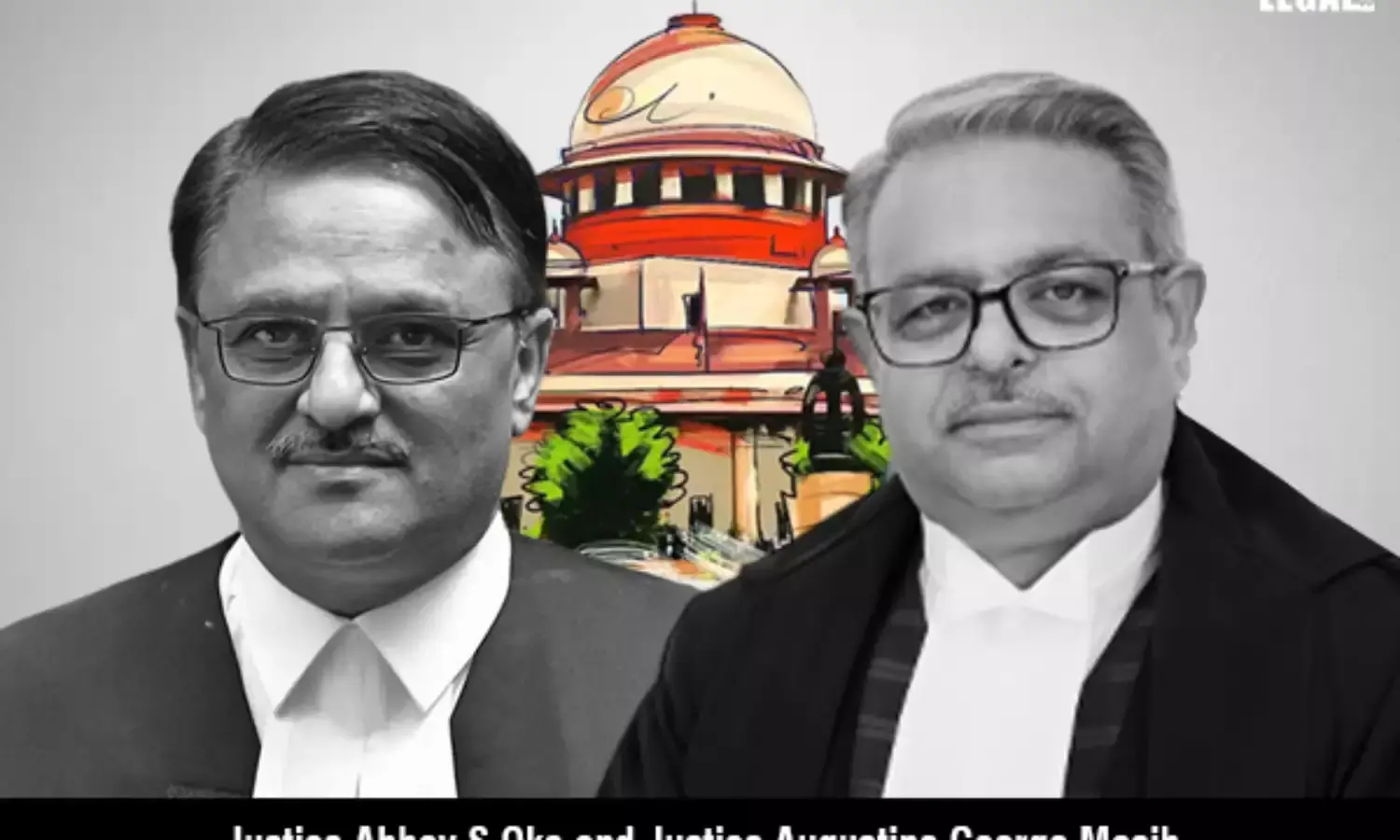Supreme Court Calls For ‘Serious Introspection’ On Senior Advocate Designation Process, Refers Issue To CJI
The Supreme Court on Thursday emphasized the need for "serious introspection" regarding the process of designating lawyers;

Supreme Court Calls For ‘Serious Introspection’ On Senior Advocate Designation Process, Refers Issue To CJI
The Supreme Court on Thursday emphasized the need for "serious introspection" regarding the process of designating lawyers as senior advocates. A bench of Justices Abhay S Oka and Augustine George Masih referred the matter to Chief Justice Sanjiv Khanna to decide whether a larger bench should examine the issue.
Expressing reservations about the current system, the bench questioned whether a brief interview could truly assess a lawyer’s personality and suitability for senior designation. The court noted that the existing framework under the Advocates Act, 1961, does not explicitly allow advocates to apply for the designation.
“The question that needs serious consideration is whether the court should permit applications for designation when the statute does not contemplate it. If the legislature had intended to allow such applications, sub-section (2) of Section 16 would not have required courts to seek the advocate’s consent before designation,” the bench observed.
Section 16 of the Advocates Act governs the designation of senior advocates. The bench raised concerns that subjecting an advocate to an interview might compromise their dignity and reduce the designation process to a mere selection exercise.
The court recalled a 2017 judgment by a bench comprising Justices Ranjan Gogoi, R.F. Nariman, and Navin Sinha, which laid down guidelines for senior designations. These included forming a permanent committee led by the Chief Justice of India to oversee the process. However, the current bench clarified that its observations were not intended to challenge the previous ruling but rather to facilitate a fresh examination of the concerns.
Under the present system, the permanent committee assesses candidates using a points-based evaluation. The Supreme Court questioned whether this method adequately ensures that only deserving advocates receive the designation.
“No one can dispute that an advocate who lacks integrity or fairness is not entitled to designation. If such an advocate excels in an interview but has a questionable professional record, there is currently no scope to deduct points on that basis,” the bench pointed out.
The court highlighted the importance of maintaining the dignity and prestige of the senior designation, stating that only truly deserving advocates should be conferred this status. It warned that if undeserving candidates were designated, it could impact the judiciary’s credibility.
The bench stressed that the process must be refined to ensure transparency and meritocracy. “A best possible system should be devised in accordance with Section 16(2) of the Advocates Act. The goal must be to ensure that only deserving advocates receive the designation,” it observed.
The 2017 ruling had also proposed establishing a permanent secretariat to compile information on prospective candidates. However, concerns have been raised over the weightage given to interviews, with fears of bias, manipulation, and unequal opportunity.
The Supreme Court has now referred the matter to Chief Justice Sanjiv Khanna to determine whether a larger bench should revisit the existing framework.


